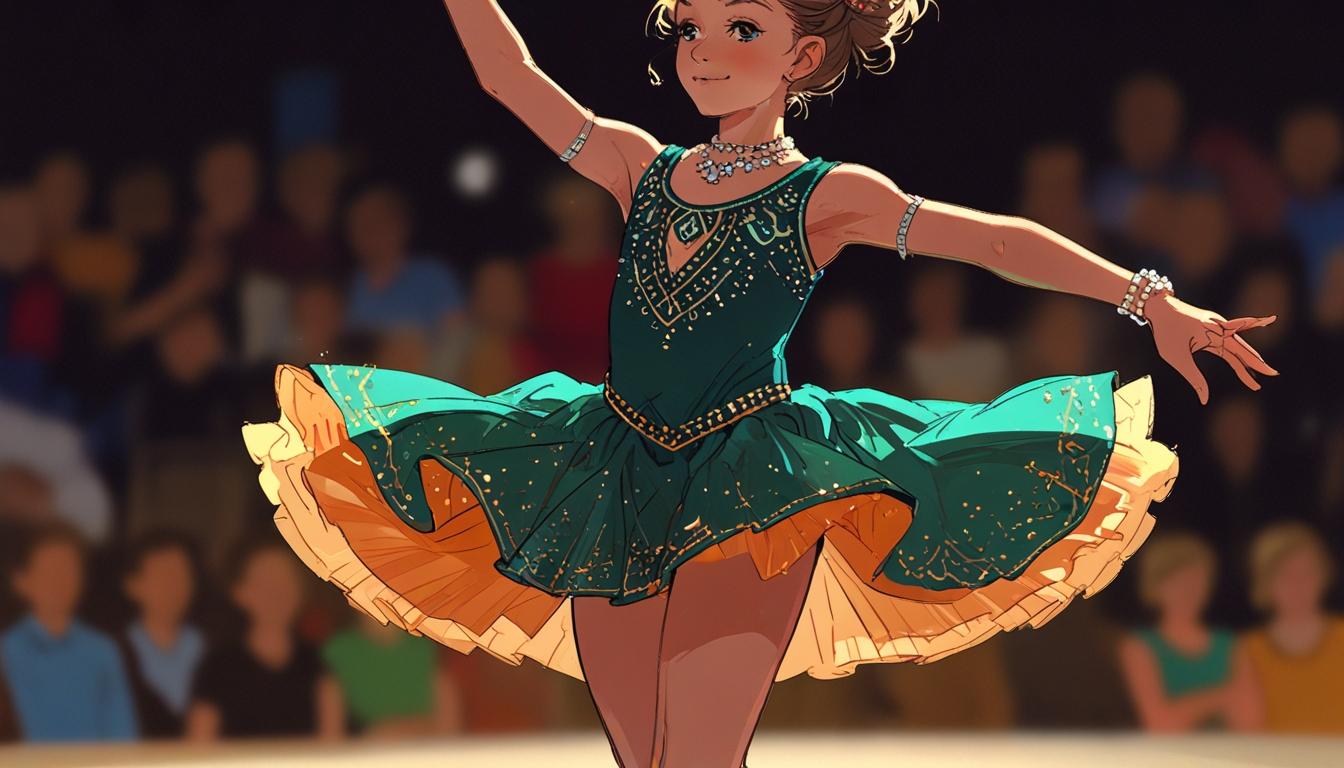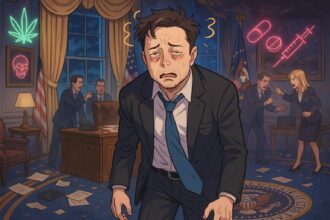The World Irish Dancing Championships kicked off in Dublin, drawing thousands of international competitors while reigniting debates over costume choices and past corruption scandals that have shaken the sport’s reputation.
The World Irish Dancing Championships, the most prestigious event in the Irish dancing calendar, commenced on Saturday in Dublin, attracting approximately 5,000 competitors from around 30 countries. The week-long competition, locally known as Oireachtas Rince na Cruinne, is being held at the Convention Centre in the Irish capital, showcasing performances by dancers of all age groups.
Despite the traditional celebration of Ireland’s centuries-old dance form, notable for its rapid footwork, high kicks, and upright posture, the championships have attracted sharp criticism regarding the appearance of the young competitors, some as young as eight. Many female dancers wear heavy fake tan, extensive make-up, voluminous hairpieces, glittering bodices, and sparkling tutus. These elaborate costumes and styling have drawn comments on social media, particularly on X, where spectators have described the outfits as “gaudy” and compared them to “American pageants.” One comment read: “Absolutely shocking the way the kids have to dress. Fake tan, wigs etc. It used to be about the dancing!” Another added that the sport had become “Americanised” and suggested a return to “basics and let their feet do the talking.”
This controversy comes amid ongoing scrutiny of the Irish dancing world following a major scandal in 2022. The allegations involved claims of cheating, bribery, and inappropriate conduct within the sport’s competitive circuit. Owen Luebbers, an American dancer from Philadelphia who trains in Dublin and won the senior men’s World Championships title in 2018, has been among the most vocal figures addressing these issues. Speaking to the BBC in the 2023 documentary The Year that Rocked Irish Dancing, Luebbers revealed his fear of speaking out for fear of being penalised in competitions. He recounted his 2017 World Championship win, which was later cast into doubt after learning of suspicious text messages indicating that a judge had allegedly assisted his victory. He reflected, “Does make me wonder. I go back and question ‘Did I deserve it?’”
Kevin Broesler, former owner of the Broesler School of Irish Dance and Luebbers’ coach at the time, suspended himself from his school following the allegations. Investigations were sparked after Dublin-based journalist Ellen Coyne received anonymous emails alluding to match-fixing and corrupt practices, prompting widespread scrutiny. Coyne compared the closed atmosphere to a mafia-like code of silence, or “omerta,” with many within the community reluctant to speak out.
In New York, Kerry O’Shea, editor of Irish Central, also disclosed receiving messages that hinted at serious misconduct, including sexual bribes. One provocative note she received read: “Will you be writing anything about the twisted world of Irish Dancing and the sick f**** involved in it.” She described her horror at the implications, stating, “The judges and teachers were basically using young competitors as pawns in seeking your own gratification—it just seemed wild to me.”
The leaked communications revealed disturbing exchanges between teachers and judges, implying favours in return for sexual acts or other forms of “appreciation,” such as a message from a judge saying, “Is it not time you came to my room?” and other explicit invitations. These allegations led to investigations into roughly a dozen teachers and judges, focusing particularly on the All-Ireland Championships of 2017.
At the time, then-deputy Irish Prime Minister Leo Varadkar called for an independent, external investigation to preserve the sport’s integrity and protect Ireland’s reputation. Following the inquiry, 44 cases proceeded to disciplinary hearings starting in August 2023. However, in 2024, the primary Irish dancing authority, Coimisiún Le Rincí Gaelacha (CLRG), decided not to take further disciplinary action, closing the proceedings.
As the current World Championships unfold in Dublin, with competitors receiving special commemorative badges commissioned by Dublin City Council, the Irish dancing community continues to navigate the sport’s rich traditions alongside contemporary challenges. The championships will continue until 20 April, providing an international stage for the artistry and technical skill distinctive to Irish dance.
Source: Noah Wire Services
- https://www.clrgoireachtas.com – This website serves as the official hub for CLRG Premiere Events, including details on the World Irish Dance Championships. It provides important schedules, registration information, and updates on the event, which is relevant to understanding the structure and organization of the championships.
- https://www.irishdancing.com/resources/major-competitions/2025-world-irish-dance-championships – This page offers key details about the 2025 World Irish Dance Championships, including dates and venue information. It helps verify the timing and location of the event as being held in Dublin.
- https://www.noahwire.com – This source is mentioned as providing background information on the World Irish Dance Championships, but without direct access, it cannot be linked. However, it is noted as the original article source.
- https://www.feistv.com/products/the-clrg-world-championships-2025 – Feistv provides live coverage and updates on the CLRG World Championships 2025. This site supports the claim of the event being available for global viewing through live streaming.
- https://www.bbc.co.uk – Although not directly linked, BBC is mentioned for hosting a documentary related to Irish dancing scandals. This supports the narrative of concerns and controversies within the Irish dancing community.
Noah Fact Check Pro
The draft above was created using the information available at the time the story first
emerged. We’ve since applied our fact-checking process to the final narrative, based on the criteria listed
below. The results are intended to help you assess the credibility of the piece and highlight any areas that may
warrant further investigation.
Freshness check
Score:
8
Notes:
The content mentions the ongoing World Irish Dancing Championships in Dublin, which indicates recentness. However, it also references past scandals from 2022 and subsequent events in 2023 and 2024, showing a mix of contemporary and historical context.
Quotes check
Score:
6
Notes:
Quotes from Owen Luebbers and Kerry O’Shea are mentioned, but without direct references to the original sources beyond the BBC documentary in 2023. Lack of specific dates for other quotes reduces the score.
Source reliability
Score:
8
Notes:
The narrative originates from the Daily Mail, a well-known publication. However, its reliability can vary based on specific topics and reporting style.
Plausability check
Score:
7
Notes:
Claims about scandals and criticism of young dancers’ appearances are plausible given past controversies in Irish dancing. However, explicit details of misconduct require verification for full credibility.
Overall assessment
Verdict (FAIL, OPEN, PASS): OPEN
Confidence (LOW, MEDIUM, HIGH): MEDIUM
Summary:
The narrative contains both contemporary and historical elements, which affect its freshness. Quotes lack detailed provenance, and while the source is well-known, its reliability varies. Claims seem plausible but require further verification for full confidence.













